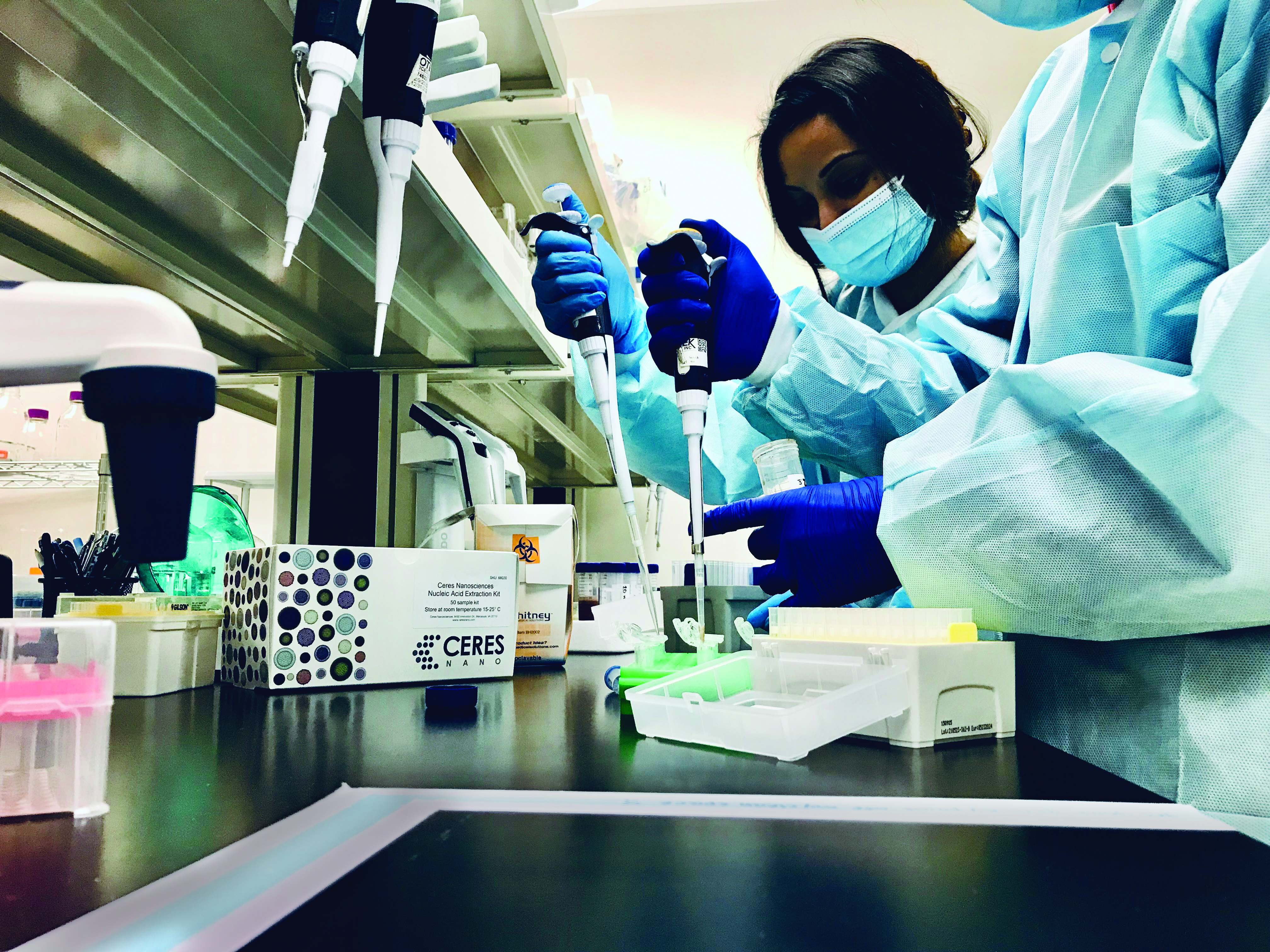
Case Studies
Ceres Nanosciences Takes its Diagnostic Technology Global With VEDP’s Help
Ceres Nanosciences, Inc., is a privately held company based in Prince William County’s Innovation Park. The company’s proprietary Nanotrap® particle technology improves diagnostic testing by enabling the capture, concentration, and preservation of low-abundance analytes from complex biological samples. In short, Nanotrap particles enable earlier, more accurate detection of diseases.
Ceres’ technology has proven useful in an area that was in the news during the COVID-19 pandemic — monitoring wastewater for pathogens. In addition to the often-cited use cases of monitoring wastewater from dorms, correctional facilities, or wastewater treatment plants, Ceres’ technology is used to monitor wastewater samples from airplanes to help trace the movement of diseases from country to country.
The problem: Ceres needed to determine which international markets were the best choice for Nanotrap technology.
As a small business focused on product development, Ceres’s sales and marketing resources are still being built up. International markets are a particular challenge, particularly in a heavily regulated industry. Ceres leadership needed help to find the most promising countries for potential expansion, and VEDP’s International Trade department was there to help.
The solution: VEDP’s market assessments helped the company narrow down its export efforts to focus on the most promising markets.
Ceres engaged VEDP in 2022 for market assessments in a number of countries, not all of which bore fruit. The Spanish and Indian markets turned out not to be immediately viable for various reasons — a benefit often cited by Trade clients as helpful in avoiding spending money in a market that isn’t the right match.
Canada, Australia, and the United Kingdom were a different story. VEDP contacts in those countries helped provide an overview of the local opportunities for the Nanotrap technology, including identification of potential customers and key decision-makers.
“Once we got into those conversations with those decision-makers in the U.K. and Australia, they had already heard of us, had begun evaluations of our products, and were on the way to getting us positive assessments,” said Robbie Barbero, Chief Business Officer at Ceres. “That gave us a lot of confidence that we had a good reputation in those markets and were already on the way.”
The result: Partnerships that are placing Ceres technology in labs in Africa and the Middle East — with the possibility of more to come.
Ceres recently announced a partnership with cell programming and biosecurity company Ginkgo Bioworks to bring the Nanotrap technology to pathogen monitoring laboratories around the world – a deal which has already resulted in labs in the Middle East and Africa using the Nanotrap technology. That agreement comes on the heels of a deals with Streck and Promega to deploy the Nanotrap technology internationally.
Ceres’ technology has the benefit of being useful without the large capital investments that testing space often requires — the company provides a solution that can go into already-existing facilities. With VEDP’s help, Ceres and its international partners are rolling it out to help prevent and manage future pandemics.



